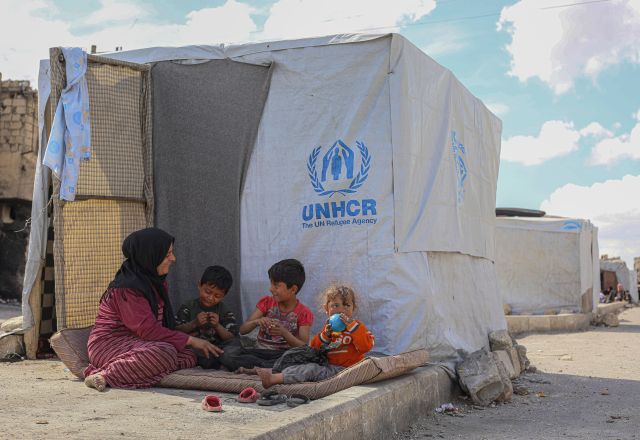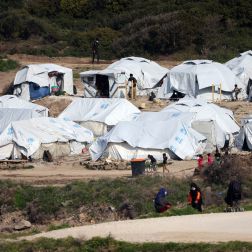
- 5 mins read time
- Published: 28th May 2024
EU and Ireland's Stance on International Tax Cooperation
A Contradiction in Multilateralism
It is widely recognised in Ireland and the EU that the global challenges we face – including climate change, tackling rising inequality and responding to complex and protracted humanitarian crises – can only be solved on a multilateral basis. It is also recognised by Ireland that many global multilateral institutions, including the United Nations, need reform as their decision-making structures are “historically unjust”.
It is then very confusing and worrying that both Ireland and the EU are unsupportive of one of the most important multilateral processes, the United Nations Convention on International Tax Cooperation (UNFCITC), that is seeking to address at least some of these issues. This process has come about as most countries in the world have recognised that the OECD BEPS process has not achieved a fair global tax system.
It is really disappointing that a golden opportunity to lay the foundations for an international tax framework that overcomes the structurally embedded, racialised inequalities in decision making power that the world has inherited from the imperial and colonial dynamics with which the current rules were decided is not supported by Ireland and the EU.
Let’s get real. The world and the EU is facing an inequality crisis. An increasing gap between rich and poor is creating divided societies and stoking populist sentiment, especially when states are not able to provide timely, accessible and affordable public services. When public services are inadequate or unavailable, it places an inordinate burden on everyone, especially women.
The EU’s five richest billionaires have increased their wealth by 76 percent since 2020, from 244 billion euro to 429 billion. That sees their wealth growing at a rate of 5.7 million euros per hour. At the same time, 99 percent of the EU’s population has become poorer. Oxfam has estimated that a progressive wealth tax of up to 5% on the EU’s multi-millionaires and billionaires could collect 286.5 billion euros annually.
The multiple crises that have affected the EU and the world in recent years have increased the need for additional sources of funding. Dealing with climate crisis, the fallout from the COVID pandemic, the war in Ukraine with its knock-on exacerbation of the food and energy crises, all require additional investments. The EU needs additional resources to implement the European Green Deal, to provide sufficient climate finance funds and to pay for loss and damage, to ensure that countries least responsible for climate breakdown are compensated by countries, like those in the EU, who have most responsibility. This is the essence of climate justice. Finally, the EU budget for international cooperation and humanitarian actions does not meet the needs, and risks being further stretched because of the Ukraine conflict response.
In this context, the risk is that EU countries will implement austerity policies, increase their debt or just fail to meet their commitments. We already know the negative impact this has on social solidarity and our political systems. New resources must be found to fund accessible public services. Private sector investment has a role to play, when regulated appropriately, but on its own has been shown to be ineffective in tackling inequality. This means we must be open to taxing the wealthiest and the most profitable companies and polluters, through both new taxes and by strengthening the fight against tax avoidance. This is an essential approach not only in raising revenue but also fostering fairness and social solidarity.
Ireland’s MEPs should help design fairer tax systems that address inequality and reduce poverty by:
- Engaging to build an ambitious framework convention on tax under the UN, with the aim of ensuring that developing countries can participate equally in the global reform of international tax rules. Ireland and the EU are currently not supportive of this important multilateral approach at the UN.
- Asking for more progressive corporate taxes, starting with taxing share buybacks to disincentive the purchase by the company of their own shares, to more ambitious measures like sector-wide and automatic windfall profit taxes and a new system of progressive corporate taxation, where excess profit is regularly taxed at a much higher tax rate.
- Pushing the Commission for a more active role on individual forms of taxation, through the introduction of EU capital gain and wealth taxes, an EU assets registry, and a ban on harmful tax regimes for individuals (e.g. “golden passports”)
- Continuing to call for more effective measures against corporate tax avoidance, like implementing more robust action on the EU tax havens list, the introduction of a fair redistribution of taxing rights in the EU (through a revision of the BEFIT or a new proposal) adoption or implementation of an effective legislation against shell companies and enablers of tax avoidance, introduction of an EU-minimum withholding taxes on passive income.
- Urging the Commission on the need for progressive and fair environmental taxes, that do not hit the poorest citizens and countries, and monitor the impact of existing measures on the poorest (e.g. the Carbon Border Adjustment Mechanism).
- Engaging to build an ambitious framework convention on tax under the UN, with the aim of ensuring that developing countries can participate equally in the global reform of international tax rules. Ireland and the EU are currently not supportive of this important multilateral approach at the UN.




